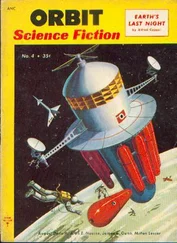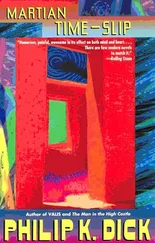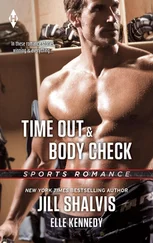Philip Dick - Time Out of Joint
Здесь есть возможность читать онлайн «Philip Dick - Time Out of Joint» весь текст электронной книги совершенно бесплатно (целиком полную версию без сокращений). В некоторых случаях можно слушать аудио, скачать через торрент в формате fb2 и присутствует краткое содержание. Жанр: Фантастика и фэнтези, на английском языке. Описание произведения, (предисловие) а так же отзывы посетителей доступны на портале библиотеки ЛибКат.
- Название:Time Out of Joint
- Автор:
- Жанр:
- Год:неизвестен
- ISBN:нет данных
- Рейтинг книги:5 / 5. Голосов: 1
-
Избранное:Добавить в избранное
- Отзывы:
-
Ваша оценка:
- 100
- 1
- 2
- 3
- 4
- 5
Time Out of Joint: краткое содержание, описание и аннотация
Предлагаем к чтению аннотацию, описание, краткое содержание или предисловие (зависит от того, что написал сам автор книги «Time Out of Joint»). Если вы не нашли необходимую информацию о книге — напишите в комментариях, мы постараемся отыскать её.
Time Out of Joint — читать онлайн бесплатно полную книгу (весь текст) целиком
Ниже представлен текст книги, разбитый по страницам. Система сохранения места последней прочитанной страницы, позволяет с удобством читать онлайн бесплатно книгу «Time Out of Joint», без необходимости каждый раз заново искать на чём Вы остановились. Поставьте закладку, и сможете в любой момент перейти на страницу, на которой закончили чтение.
Интервал:
Закладка:
"We got through the border clearance okay," Vic said. "If we can do that, with them shining their lights right on us, we ought to be able to walk into a beanery and order a plate of hotcakes. I didn't have any dinner after work." He rolled back his sleeve to read his wristwatch. "It's ten-thirty," he said. "I haven't had anything to eat since two."
"We'll stop," Ragle said. "We'll try to get fuel while we're here. If we can't get it, we'll leave the truck." The gauge showed the tank to be almost empty. The level had dropped surprisingly fast. But they had gone quite a distance; they had been on the road for hours.
It struck him, as they passed the first houses, that something was missing.
Gas stations. Usually, on highway approaches to a town, even a tiny unimportant town, a solid line of gas stations could be seen on both sides. Before anything else. None here.
"It doesn't look good," he said. But they had seen no traffic, either. No traffic and no gas stations. Or kerosene stations, if that was the equivalent. Suddenly he slowed the truck and turned onto a side road. He brought the truck to a halt at the curb.
"I agree," Vic said. "We better try it on foot. We don't know enough to drive this thing around town."
They got warily out and stood together, in the dull light of an overhead street lamp. The houses appeared ordinary. Small, square, one story, with lawns that were black in the night darkness. Houses, Ragle thought, haven't changed much since the 'thirties anyhow. Especially if seen at night. One taller shape might have been a multiple unit.
"If they stop us," Vic said, "and ask for identification or some such, what should we do? We better agree on it now."
Ragle said, "How can we agree? We don't know what they'll ask for." The driver's remarks still bothered him. "Let's see," he said, and started off in the direction of the highway.
The first lights resolved themselves into a roadside diner. Within, sitting at the counter, two boys ate sandwiches. High school boys, with blond hair.
Their hair had been wound up into topknots. Tall cones of hair, each with a sharp, colorful spike stuck into it. The boys wore identical clothes. Sandals, wrap-around bright blue togalike gowns, metal bracelets on their arms. And when one of them twisted his head to drink from a cup, Ragle saw that the boy's cheeks had been tattooed. And, he saw with disbelief, the boy's teeth had been filed.
Beyond the counter, the middle-aged waitress wore a simple green blouse, and her hair had been trained in a familiar manner. But the two boys... both he and Vic stared at them, through the window, until at last the waitress noticed them.
"We had better go on in," Ragle said.
The door opened for them by electric eye. Just like the supermarket, Ragle thought.
Both boys watched them as they self-consciously seated themselves in one of the booths. The interior of the diner, the fixtures and signs and lighting, seemed ordinary to him. Ads for a number of foods... but the prices made no sense. 4.5, 6.7, 2.0. Obviously not dollars and cents. Ragle stared around him, as if he were trying to decide what he wanted. The waitress began to gather up her order pad.
One of the boys, nodding his topknotted head toward Vic and Ragle, said audibly, "Necktie-fellows, them smell frightfright."
His companion laughed.
The waitress, stationing herself at their booth, said, "Good evening."
"Good evening," Vic muttered.
"What would you like?" the waitress asked.
Ragle said, "What do you recommend?"
"Oh, depends on how hungry you are," the waitress said.
The money, Ragle thought. The damn money. He said, "How about a ham and cheese sandwich and coffee."
Vic said, "The same for me. And some pie a la mode."
"Pardon?" the waitress said, writing.
"Pie with ice cream," Vic said.
"Oh," she said. Nodding, she returned to the counter.
One of the boys said in a clear voice, "Necktie-fellows, many old thing-sign. You s'pose--" He stuck his thumbs in his ears. The other boy snickered.
When the sandwiches and coffee had been brought, and the waitress had gone off, one of the boys swiveled around in his chair to face them. The tattooing on his cheeks, Ragle noticed, had been carried out in design on his arm bracelets. He gazed at the intricate lines, and at last he identified the figures. The designs had been copied from Attic vases. Athena and her owl. Kore rising from the Earth.
The boy said directly to him and Vic, "Hey, you lunatic." The flesh at the back of Ragle's neck began to crawl. He pretended to concentrate on his sandwich; across from him Vic, sweating and pale, did the same.
"Hey," the boy said.
The waitress said, "Cut it out, or out of here for you."
To her, the boy said, "Necktie-fellow." Again he stuck his thumbs in his ears. The waitress did not seem impressed.
I can't stand it, Ragle thought. I can't live through this. The driver was right. To Vic he said, "Let's go."
"Fine," Vic said. He arose, grasping his sandwich, bent down to drink the last of his coffee, and then started for the door.
Now the cheek, Ragle thought. So we're doomed. We can't win.
"We have to get going," he said to the waitress. "Never mind the pie. How much?" He groped in his coat pocket, a futile gesture.
The waitress added up the bill. "Eleven-Nine," she said.
Ragle opened his wallet. The two boys watched. So did the waitress. When they saw the money, the paper banknotes, the waitress said, "Oh dear. I haven't seen paper money in years. I guess it's still good." To the first of the boys she said, "Ralf, does the government still redeem those old paper notes?"
The boy nodded.
"Wait," the waitress said. She recomputed the bill. "That'll be one-forty," she said. "But I'll have to give you your change in tokes. If that's all right." Apologetically, she dug a handful of small plastic wafers from the register, and as he gave her a five-dollar bill she handed back six of the wafers. "Thank you," she said.
As he and Vic left, the waitress seated herself with a paperbound book and resumed her reading at a flattened page.
"What an ordeal," Vic said. They walked along, both of them eating the last of their sandwiches. "Those kids. Those ghastly damn kids."
_Lunatic_, Ragle thought. Did they recognize me?
At the corner he and Vic stopped. "What now?" Vic said. "Anyhow, we can use our money. And we've got some of theirs." He lit his cigarette lighter to inspect one of the wafers. "It's plastic," he said. "Obviously a substitute for metal. Very light. Like those wartime ration tokens."
Yes, Ragle thought. Wartime ration tokens. Pennies made out of some nondescript alloy, not copper. And now, tokes. Tokens.
"But there's no blackout," he said. "They have their lights on.
"It's not the same any more," Vic said. "Lights was when--" He broke off. "I don't understand," he said. "I remember World War Two. But I guess I don't, do I? That's the whole point. That was fifty years ago. Before I was born. I never lived through the 'thirties and 'forties. Neither did you. All we know about it -- they must have taught us."
"Or we read it," Ragle said.
"Don't we know enough now?" Vic said. "We're out. We've seen it." He shuddered. "They had their teeth filed."
Ragle said, "That was almost pidgin English they were talking.
"I guess so."
"And African tribal markings. And garments." But they looked at me and one of them said, _Hey, you lunatic_. "They know," he said. "About me. But they don't care." Somehow, that made him feel more uneasy. Spectators. The cynical, mocking young faces.
"It's surprising they're not in the army," Vic said.
"They probably will be." To him, the boys had not appeared old enough. More like sixteen or seventeen.
Читать дальшеИнтервал:
Закладка:
Похожие книги на «Time Out of Joint»
Представляем Вашему вниманию похожие книги на «Time Out of Joint» списком для выбора. Мы отобрали схожую по названию и смыслу литературу в надежде предоставить читателям больше вариантов отыскать новые, интересные, ещё непрочитанные произведения.
Обсуждение, отзывы о книге «Time Out of Joint» и просто собственные мнения читателей. Оставьте ваши комментарии, напишите, что Вы думаете о произведении, его смысле или главных героях. Укажите что конкретно понравилось, а что нет, и почему Вы так считаете.









